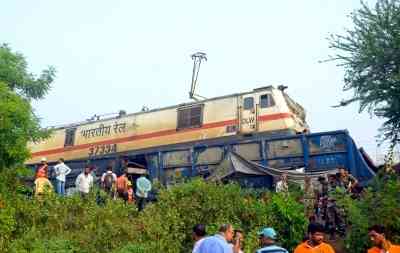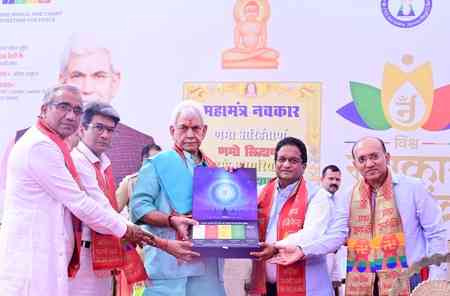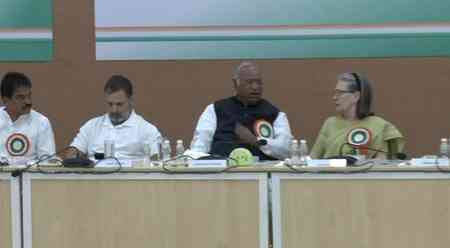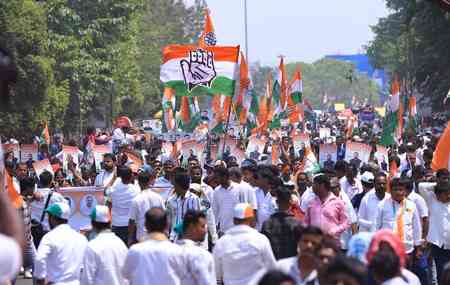Odisha tragedy: Coromandel Express derailed, rammed into goods train, dashed with Howrah SF Express
Amid confusion over the involvement of the goods train present at the accident site in Odisha's Balasore on Friday evening, the Railways on Saturday said that Coromandel Express that was going towards Chennai first derailed and collided with the stationary goods trains while some of its coaches dashed with SMVP-Howrah Superfast Express that was coming from the opposite direction on the adjoining track.

New Delhi, June 3 (IANS) Amid confusion over the involvement of the goods train present at the accident site in Odisha's Balasore on Friday evening, the Railways on Saturday said that Coromandel Express that was going towards Chennai first derailed and collided with the stationary goods trains while some of its coaches dashed with SMVP-Howrah Superfast Express that was coming from the opposite direction on the adjoining track.
The Railway Ministry officials said that 12841 Coromandel Express (Shalimar-Madras) passing through the main up line first met with an accident and dashed with the stationary goods train in the loop line at Bahanaga Bazar station.
The official said that Coromandel Express at the time of the accident was travelling at its full speed across the Bahanaga Bazar station as it was not supposed to stop there.
"However, the impact of the accident was such that 21 of its coaches derailed with three of them infringing on the down line, on which SMVP-Howrah Superfast Express was passing through simultaneously and collided, resulting in the derailment of two of its rearmost coaches," the official said.
The confusion over the accident prevailed as visuals from the accident site showed that the engine of the Coromandel Express jumped onto one of the wagons of the stationary goods train after the accident.
At least 261 people died and over 900 were injured, in one of the deadliest train accidents in decades.
It is not clear what caused the crash, as sources indicated a possible signalling failure. Some officials, wishing not to be named, said that both the trains involved in the accident were not equipped with the 'kavach' system.
Kavach alerts when a loco pilot jumps a signal (Signal Passed at Danger -- SPAD), which is the leading cause of train collisions. The system can alert the loco pilot, take control of the brakes and bring the train to a halt automatically when it notices another train on the same line within a prescribed distance.
Railway Minister Ashwini Vaishnaw, who visited the accident site on Saturday morning, said that a high-level inquiry will be conducted besides an independent inquiry by the rail safety commissioner.
Railways have begun a thorough probe, which is currently underway. The high-level probe into the train crash in Odisha's Balasore, will be headed by the commissioner of railway safety, South Eastern Circle, officials said.
The commissioner of railway safety works under the Ministry of Civil Aviation and investigates all such accidents. "A M Chowdhary, CRS, SE Circle, will inquire into the accident," a spokesperson of the Indian Railways said earlier in the day.
Meanwhile, rescue operation has been completed at the derailment site and restoration work has started.
Friday's accident in Odisha reminded of the another deadliest Firozabad Train Collision in 1995, in which 358 people died.
On August 20, 1995, a collision occurred between the Purushottam Express and the Kalindi Express in Uttar Pradesh's Firozabad, which claimed the lives of around 358 people.
In a similar accident on August 2, 1999, the Brahmaputra Mail collided with the Awadh-Assam Express near Gaisal in Assam, which claimed the lives of approximately 290 people.


 IANS
IANS 








